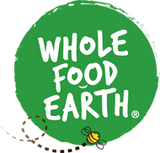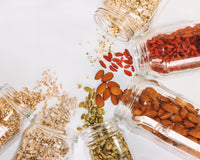The unprocessed food diet, also known as a whole foods diet, focuses on consuming foods in their natural state, with minimal to no alteration. The premise of this diet is to avoid foods that have been refined, added to, or artificially enhanced in any way. The goal is to prioritize nutrition by eating foods in their most basic, unadulterated forms.
What is Unprocessed Food?
Unprocessed foods are those that are free from industrial processing or additives. These foods are in their whole, natural form and retain most of their original nutrients. Examples include:
- Fruits and Vegetables: Fresh, frozen (without added ingredients), or dried without added sugars or preservatives.
- Whole Grains: Brown rice, oats, quinoa, whole wheat, barley, and other grains in their natural state.
- Nuts and Seeds: Raw or roasted nuts and seeds, but without added oils, salts, or sugars.
- Legumes: Beans, lentils, chickpeas, and peas, either fresh or dried.
- Protein: Fresh cuts of meat, fish, poultry, and eggs (ideally organic and grass-fed, if possible).
- Dairy: Unprocessed milk, yogurt, or cheese (without added sugars, preservatives, or artificial ingredients).
Benefits of an Unprocessed Food Diet
Better Nutrient Quality
Whole, unprocessed foods typically contain more vitamins, minerals, fibre, and antioxidants than their processed counterparts. For example, fruits and vegetables have more nutrients when they haven’t been stripped of their natural fibre or have been used with preservatives.
Improved Digestion
Many unprocessed foods are rich in fiber, which helps support healthy digestion, regulate blood sugar levels, and improve gut health.
Weight Management
Unprocessed foods are often more filling due to their higher fiber and protein content, helping to curb overeating. Whole foods also tend to have fewer empty calories and less added sugar.
Reduced Risk of Chronic Diseases
Diets that emphasize whole, unprocessed foods have been linked to lower risks of heart disease, type 2 diabetes, obesity, and certain cancers. This is primarily because of the reduced intake of refined sugars, unhealthy fats, and sodium.
Fewer Additives and Preservatives
Processed foods are often filled with unhealthy additives, such as artificial flavors, colors, sweeteners, and preservatives. An unprocessed food diet removes these from your nutrition plan, contributing to better overall health.
Increased Energy Levels
Many people report feeling more energised when eating unprocessed, whole foods. Without the spikes and crashes associated with processed sugars and refined carbs, energy levels can remain more stable throughout the day.
How to Transition to an Unprocessed Food Diet
Start Slow
Transitioning to an unprocessed food diet doesn't need to be an all-or-nothing approach. Start by eliminating one type of processed food at a time, such as sugary snacks, and replacing them with whole food alternatives like fruits, nuts, or homemade baked goods.
Shopping list
When shopping for food, look for the right shop and stick to your shopping list (to avoid temptations). Focus on local grocery shops - this is usually where fresh produce like veg and fruit is sold, natural and organic food shops or look for whole foods online shops. When in a large supermarket look for the aisles with unprocessed and avoid heavily promoted processed packaged foods.
Cook More at Home
Preparing meals from scratch allows you to control exactly what goes into your food. Start with simple recipes that use whole foods as the base.
Read Labels
If you do buy packaged foods, read the labels carefully. Choose products that have minimal ingredients and no artificial additives, preservatives, or sweeteners.
Meal Prep
Preparing meals in advance can help you stay on track with your unprocessed food goals, making it easier to resist the temptation of processed snacks or convenience meals.
Examples of Unprocessed Meals
- Breakfast: Porridge or oatmeal made with rolled oats, topped with a handful of nuts and seeds, with a drizzle of honey or agave. Or pancakes made with buckwheat flour and plant based milk served with fresh seasonal fruits.
- Lunch: A homemade beans soup or chickpea-based salad or quinoa salad with roasted vegetables, and tahini dressing.
- Dinner: Grilled fish or chicken with a side of baked sweet potato, steamed broccoli, and tomato salad with onion, topped with sunflower seeds.
- Snack: Fresh fruit, a handful of dried fruits, homemade trail mix, homemade granola bar or a handful of raw almonds.
You can do it for your wellbeing
Adopting an unprocessed food diet is an effective way to prioritise health and nutrition by focusing on whole, natural foods. While it may require more time, effort, and planning, the long-term benefits for your physical and mental well-being are well worth the investment. By making small, sustainable changes, you can enjoy improved energy, digestion, and reduced risks of chronic health conditions.






